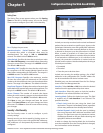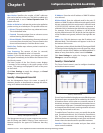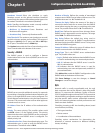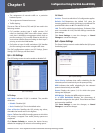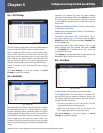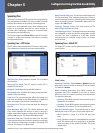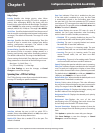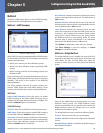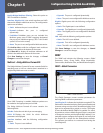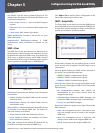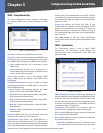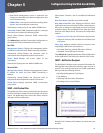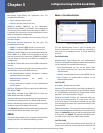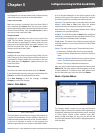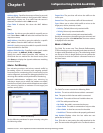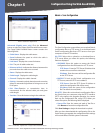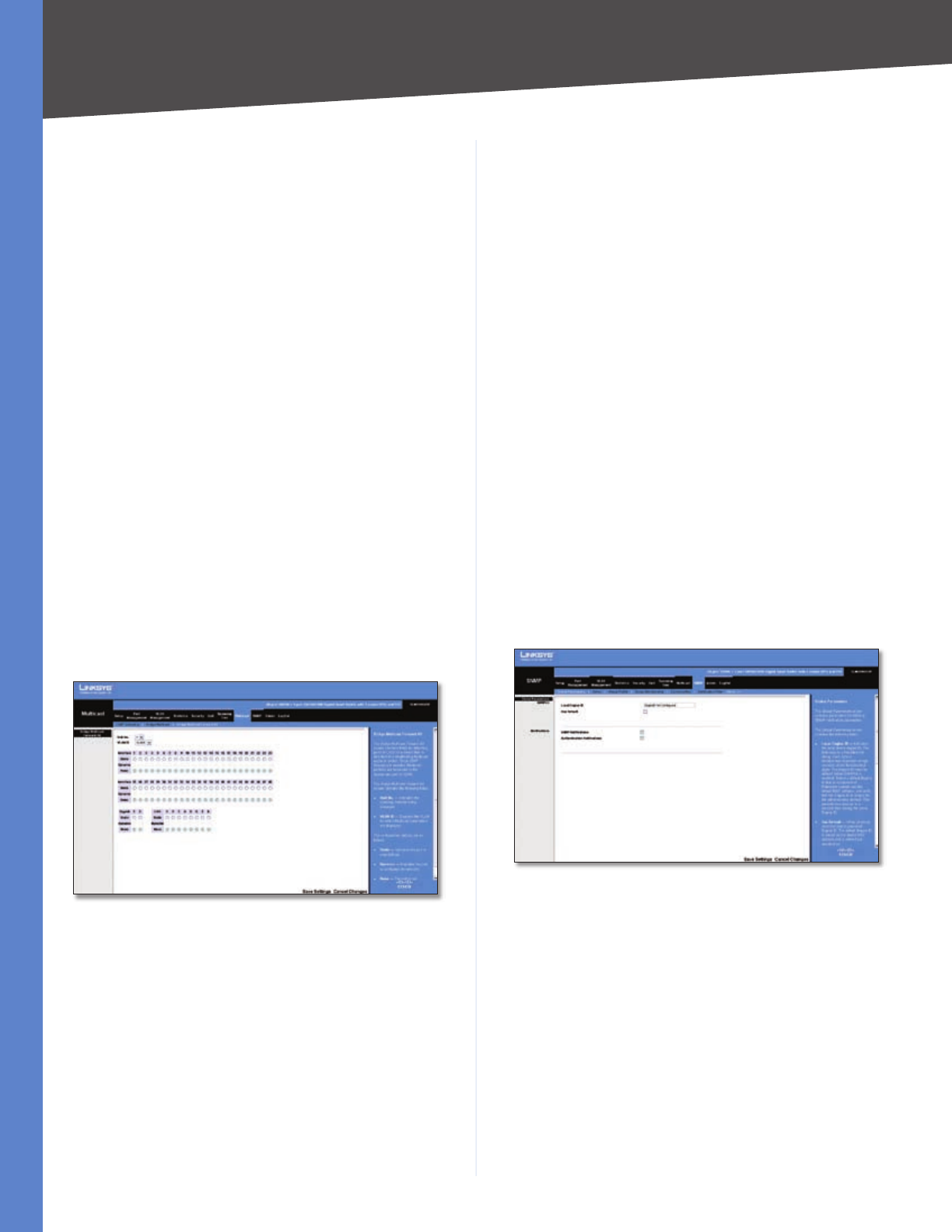
Chapter 5
Configuration Using the Web-based Utility
39
24/48-Port 10/100 + 4-Port Gigabit Smart Switch with Resilient Clustering Technology and PoE
Enable Bridge Multicast Filtering Select this option to
TBD. The default is disabled.
Interface, Gigabit, LAG Lists switch interfaces and LAGs
that can be added to a Multicast service. The configuration
options are as follows:
Static Indicates the port is user-defined.
Dynamic Indicates the port is configured
dynamically.
Forbidden Forbidden ports are not included the
Multicast group, even if IGMP snooping designated
the port to join a Multicast group. [TBD - is this a valid
option? It’s not in the screen]
None The port is not configured for Multicast service.
Click Add to List to add the configured static multicast
address to the table at the bottom of the screen.
Click Show All to display all multicast addresses on all
VLANs in the table at the bottom of the screen.
Click Save Settings to save the changes, or Cancel
Changes to cancel the changes.
Multicast > Bridge Multicast Forward All
The Bridge Multicast Forward All screen contains fields for
attaching ports or LAGs to a device that is attached to a
neighboring Multicast router or switch.
Multicast > Bridge Multicast Forward All
Once IGMP Snooping is enabled, Multicast packets are
forwarded to the appropriate port or VLAN.
The Bridge Multicast Forward All screen contains the
following fields:
Unit No. Select t
he unit which you are managing
.
VLAN ID Displays the VLAN for which Multicast
parameters are displayed.
Interface Interfaces with the following configuration
options:
Static The port is user-defined.
•
•
•
•
•
Dynamic The port is configured dynamically.
None The port is not configured for Multicast service.
Gigabit Gigabit ports with the following configuration
options:
Static The Gigabit port is user-defined.
Dynamic The Gigabit port is configured dynamically.
None The Gigabit port is not configured for Multicast
service.
LAG LAGs with the following configuration options:
Static The LAG is user-defined.
Dynamic The LAG is configured dynamically.
None The LAG is not configured for Multicast service.
Click Save Settings to save the changes, or Cancel
Changes to cancel the changes.
SNMP
The SNMP tab includes the following screens: Global
Parameters, Views, Group Profile, Group Membership,
Communities, Notification Filter, and Notification Recipient.
SNMP > Global Parameters
SNMP > Global Parameters
The Global Parameters screen contains parameters for
defining SNMP notification parameters.
Local Engine ID Indicates the local device engine ID. The
field value is a hexadecimal string. Each byte in hexadecimal
character strings consists of two hexadecimal digits. Each
byte can be separated by a period or a colon. The Engine
ID must be defined before SNMPv3 is enabled. For stand-
alone devices, select a default Engine ID that is comprised
of Enterprise number and the default MAC address. For a
stackable system configure the Engine ID, and verify that
the Engine ID is unique for the administrative domain.
This prevents two devices in a network from having the
same Engine ID.
•
•
•
•
•
•
•
•



